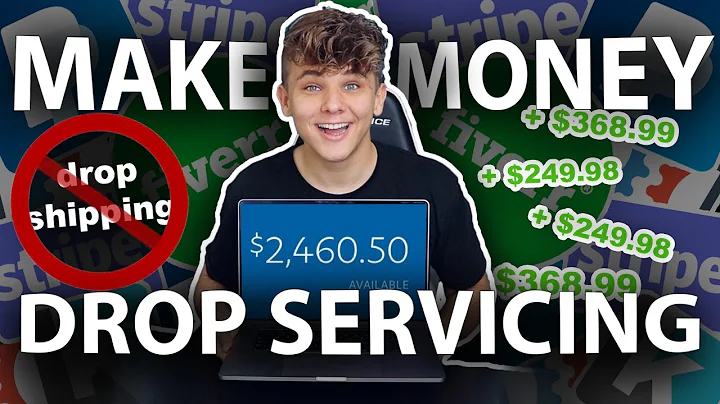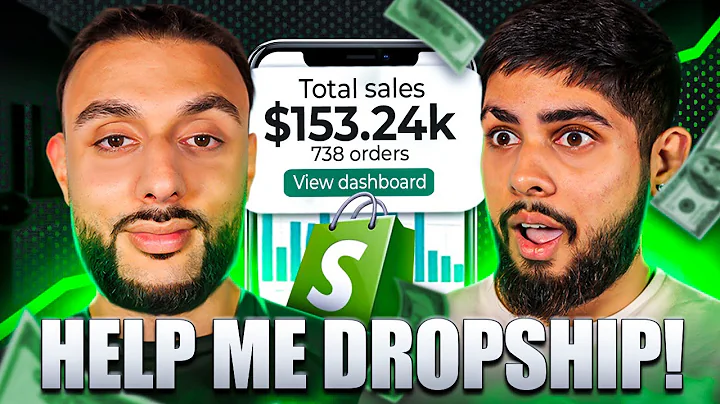Navigating the Challenges of Selling PPE: What You Need to Know
Table of Contents
- Introduction
- The Temptation of Selling PPE
- The Downsides of Selling PPE
- The Scamming and Counterfeit Issues
- The Importance of 3M Masks
- The Scammers and Fraudsters
- Difficulties in Sourcing 3M Masks
- Government Confiscation of Masks
- FEMA's Role in Seizing Medical-grade Items
- Importance of Proper Documentation
- The Consequences of Failed Documentation
- Caution and Due Diligence Before Investing in PPE
- Conclusion
Selling PPE: The Temptation and the Downsides
The current global situation has created a lucrative opportunity for individuals to venture into the business of selling personal protective equipment (PPE). The skyrocketing demand for masks, hand sanitizers, and other critical items has enticed many to seize the opportunity and potentially make substantial profits. However, before jumping headfirst into this endeavor, it is essential to be aware of the potential downsides and pitfalls that come with selling PPE.
The Temptation of Selling PPE
In these uncertain times, it is understandable to be attracted to the idea of selling PPE. The allure of being able to purchase masks and other supplies at a low cost and sell them for a significant markup cannot be denied. The promise of making substantial profits may seem too good to resist. However, it is vital to exercise caution and consider the challenges and risks involved in this venture.
The Downsides of Selling PPE
While the potential profits may seem enticing, it is crucial to acknowledge the downsides of selling PPE. One of the main challenges is the prevalence of scammers and counterfeiters in the market. As the demand for PPE continues to rise, unscrupulous individuals have taken advantage of the situation by producing fake or low-quality products. This not only poses a risk to consumers but also tarnishes the reputation of legitimate suppliers.
The Scamming and Counterfeit Issues
The rise in demand for PPE has made reputable brands like 3M highly sought after. However, this popularity has also attracted scammers and counterfeiters. As the name "3M" has become synonymous with quality and reliability, fraudsters attempt to capitalize on this reputation by producing fake 3M masks. It is important to be cautious and vigilant when sourcing these masks to ensure their authenticity.
The Importance of 3M Masks
3M masks have become a household name during the global pandemic. Their reputation for producing high-quality masks has made them highly desirable in the market. However, this popularity has also led to an increase in counterfeits. It is vital to understand the risks associated with purchasing and selling 3M masks to protect both yourself and your customers.
The Scammers and Fraudsters
In the rush to secure PPE supplies, it is crucial to be aware of scammers and fraudsters who are looking to take advantage of unsuspecting buyers. These individuals may appear legitimate and promise to provide authentic PPE products at significantly lower prices. However, falling victim to their schemes can result in financial loss and reputation damage.
Difficulties in Sourcing 3M Masks
Acquiring genuine 3M masks can be a formidable task. Unless you have direct access to 3M's supply chain or a trusted source within the company, it is nearly impossible to obtain authentic 3M masks. The prevalence of counterfeiters and scammers makes it challenging to distinguish between genuine and fake products, further complicating the sourcing process.
Government Confiscation of Masks
Various governments worldwide have become more vigilant in ensuring that legitimate PPE supplies reach healthcare professionals and those in need. There have been instances where governments have confiscated masks that were not properly sourced or lacked necessary documentation. This poses a significant risk to businesses involved in the selling of PPE.
FEMA's Role in Seizing Medical-grade Items
The Federal Emergency Management Agency (FEMA) in particular has been actively involved in the seizure of medical-grade items being imported into the United States. Their aim is to prevent substandard or counterfeit products from reaching the market. Businesses need to be cautious when importing and ensure that their products meet the necessary standards to avoid potential seizure by FEMA.
Importance of Proper Documentation
Proper documentation is vital when it comes to importing and selling PPE. Without the correct paperwork and certifications, your products may be stopped at customs or confiscated by government agencies. It is crucial to ensure that all required documentation, such as the Importers License, is in place and that your products comply with the necessary regulations.
The Consequences of Failed Documentation
Neglecting to provide proper documentation can have severe consequences. Your products may be detained, leading to financial loss and the inability to fulfill customer orders. It is essential to conduct thorough research and ensure that your products comply with all regulatory requirements and have the necessary documentation before making any significant investments.
Caution and Due Diligence Before Investing in PPE
Before jumping into the business of selling PPE, it is important to exercise caution and due diligence. Conduct thorough research on suppliers, verify their authenticity, and ensure they have the necessary licenses and certifications. Consider the potential risks and challenges involved, and make informed decisions based on reliable information.
Conclusion
While the opportunity to profit from selling PPE may seem promising, it is crucial to approach this venture with caution and careful consideration. The presence of scammers, counterfeiters, and government regulations makes it a challenging market to navigate. By being aware of the downsides and taking the necessary precautions, you can mitigate risks and make more informed decisions regarding the selling of PPE.















